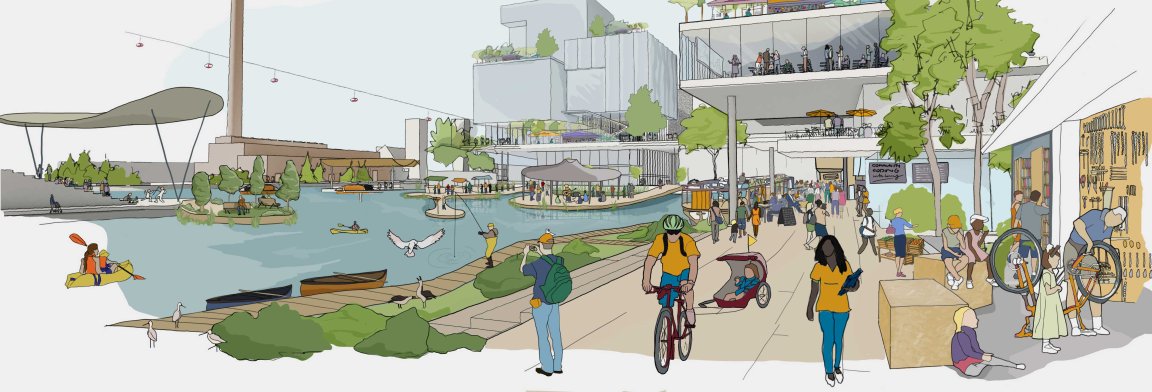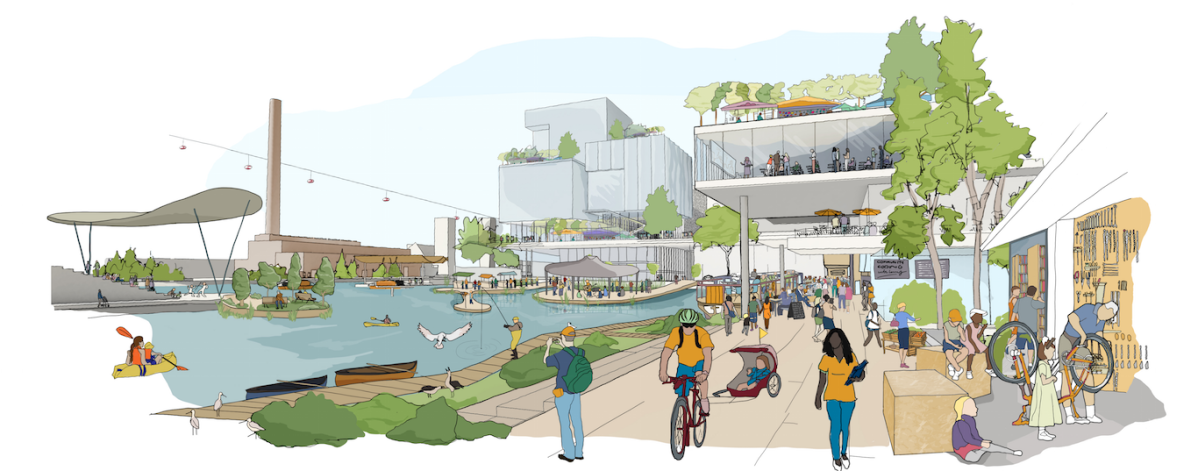
Leveraging Technology
You don’t need to look any further than the mobile device in your pocket for an example of how technology is shaping the world today, but Sidewalk Labs — the urban innovation arm of Google parent company Alphabet — wants to use technology to literally shape a piece of the world by building a high-tech neighborhood.
At a press conference on Tuesday, Sidewalk Labs announced plans to transform an area along Toronto’s waterfront into a technologically advanced neighborhood they’re calling Quayside. The project will be undertaken in partnership with the city government and Waterfront Toronto and is one part of a larger project called Sidewalk Toronto, which has a straightforward goal: use technology to solve urban Toronto’s biggest challenges.

“Today’s announcement is about creating a new type of neighborhood that puts people first. Sidewalk Toronto will transform Quayside into a thriving hub for innovation and a community for tens of thousands of people to live, work, and play,” Canadian Prime Minister Justin Trudeau said at the press conference, according to Business Insider. “I have no doubt Quayside will become a model for cities around the world and make all of our communities even better places to call home.”
Building Future Cities
Sidewalk Toronto first started to take shape after Toronto requested development proposals for an 800-acre area called Port Lands. Sidewalk Labs responded, and they’ve since committed $50 million as an initial investment for the high-tech neighborhood, which is estimated to cost some $1 billion in total. Waterfront Toronto plans to spend an additional $996 million investment from local and federal governments to build flood-preventing infrastructure along the waterfront.

The details for Quayside aren’t final yet as the planning process isn’t scheduled to start until November 1 during a community town hall. Sidewalk Labs CEO and former New York City deputy mayor Dan Doctoroff has previously spoken about how many of today’s biggest technological advancements — machine learning, smart sensors, self-driving cars, high-speed internet, etc. — could be used to build a community that truly belongs to the future, however, so that could be a hint at what’s to come for Quayside.
“This will not be a place where we deploy technology for its own sake, but rather one where we use emerging digital tools and the latest in urban design to solve big urban challenges in ways that we hope will inspire cities around the world,” said Doctoroff at the conference.